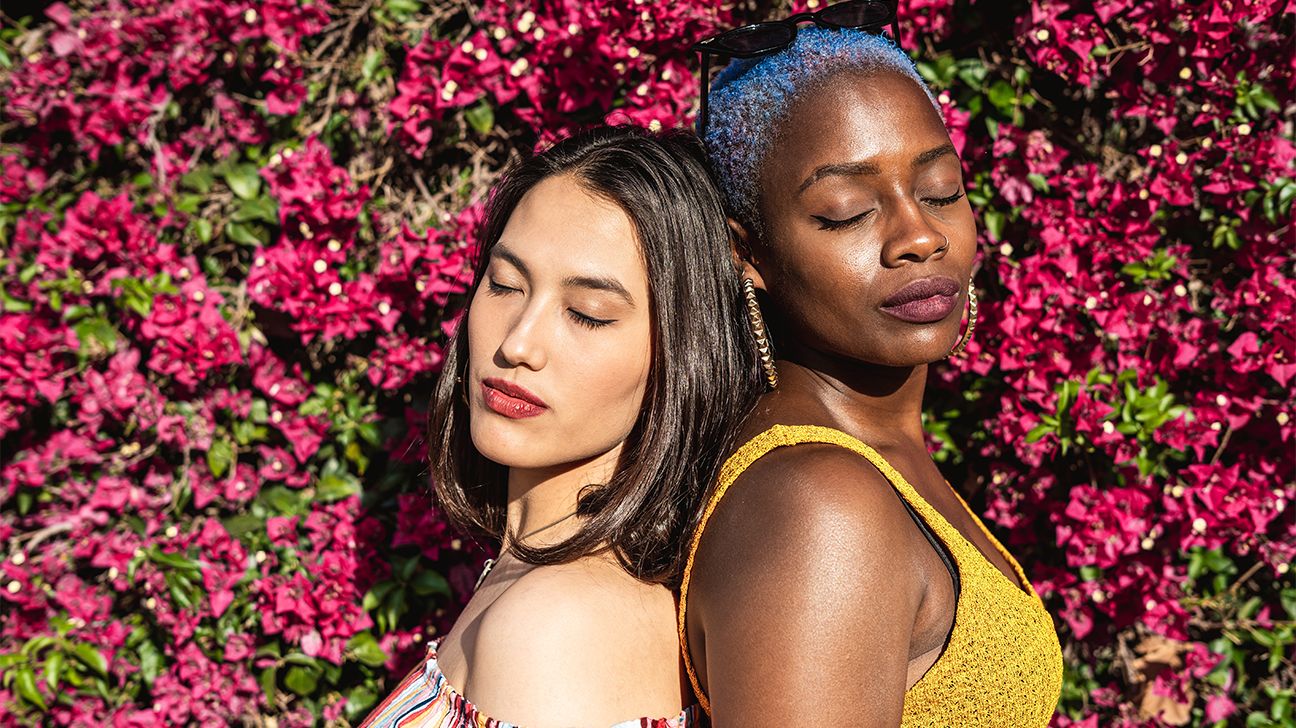So. Black people aren’t doing so great right now. Not only are we living during a pandemic that disproportionately targets and kills those in our community, but we’re also having to endure constant racial violence in person and on our screens.
Enter: you. Maybe you want to extend a helping hand or listening ear, but you’re afraid to mess up.
Here’s a fact you’re going to have to understand, though: You actually might mess up. If you’re not Black, you’re never going to understand the breadth of our experience. In the United States, we struggle with institutions that are built to keep us in our place. For years, the American institution has invoked violence upon our bodies and our psyche. It has not atoned. And white supremacy is ingrained within the very soil we walk on. We’ve normalized these facts in order to survive, but we also know it’s not normal.
How can you help in the face of all that? It’s hard to say. To guide you though, I’m going to first make a really quick list of things you ABSOLUTELY SHOULD NOT SAY:
- “I know how you feel.” No, you don’t.
- “I didn’t realize it was this bad” or “I can’t believe this is happening!” We can. It’s been happening our whole lives.
- “I support the protests, but violence/looting is not the answer.” This statement is liable to send many of us into a fit of agitation, eyerolls, and trigger our block finger.
In light of all that, here are some things to consider when caring for your Black friends during the police brutality news cycle.
If you do not legitimately have any Black friends, now is not the time to make new ones out of some false sense of solidarity. We can clock that from a mile away. Is this someone you’d normally comfort in alternative situations, like during a breakup, or through issues at work? Or did you, perhaps, go on one date and they ghosted you?
Maybe you just worked together, and exchanged a few kind words in the breakroom? A lot of us don’t want to be reminded that we’re your token Black friend, and we don’t want to share our feelings with people we aren’t actually close to.
This is not the time to prove that you’re a good ally. Nor is it a good time to ask if you’re doing this right or that right. Don’t talk about feeling guilty as a non-Black person. You can tell us what you intend to do, if you are attending protests or donating to mutual aid funds. But don’t make it your personal soapbox and don’t ask for approval.
Now, don’t apologize for everything non-Black people have done to Black people. That isn’t going to help much. But, maybe you have said negative things in the past, and your Black friend is reconciling with that. Understand how to own up to your mistakes. Accept blame, if necessary. De-center yourself, and try to see things from your friend’s eyes. Commit to doing better and learning more.
One of the most frustrating things about being Black in the U.S. is having to educate others on systemic oppression. I’ve personally spent years unlearning internalized racism, and I’m not trying to teach it to you when I’m upset. Don’t expect Black folks to educate you.
Listen to podcasts by Black people who talk about race, the news and politics. Watch movies and TV shows created by Black people. Read books by Black people on prison abolition, the enslavement of Africans, the history of Jim Crow, and the stereotypes that follow us to this day. Google is free. There are so many resources at your disposal. Don’t depend on us to do this additional labor.
Share your mutual anger if you’re angry. White supremacy affects us all negatively. Seeing well-placed rage or sadness can feel comforting. If you’re donating or protesting just because you feel obligated, though, it’ll be pretty obvious.
In investing yourself in the cause, you’re caring for all Black folk in some way or another. Seeing my friends — Black or non-Black — doing something to promote the dismantling of the system always gives me hope that there may be a better day.
Statements like “them” or “Black people” will signal to Black folks that you see yourself as outside of this. And yes, you are. It’s a precarious line to toe. However, we all have a part to play in upholding or dismantling white supremacy. If you’re another person of color, you can relate in terms of marginalization. If you’re a white person, I would not recount any of your experiences facing perceived prejudice.
The goal is to avoid talking about this situation like it’s something on the news. When you’re talking to a Black person about protests, police brutality or racism, remember that it’s something they are personally dealing with.
Don’t try to explain what is happening, or prove that you are compassionate through your understanding of social justice. Just send a text and say hi. Offer a distraction, a shared drink or meal. Just offer to be there. Ask open-ended questions that revolve around their feelings. If this person trusts you, they’ll open up. As a friend, your main role is to listen.
There’s no immediate solution to all of the problems Black people face, so don’t offer any. We know that things may never get better, so don’t try to solve the problem today. Understand that your Black friend might just need space to process.
Committing yourself to being a better ally is a long-term game. Continue to seek out knowledge concerning what you don’t know, and support eradicating oppressive systems. While you’re at it, donate to a mutual aid fund. I know I said that earlier, but do it again.
Gabrielle Smith is a Brooklyn-based poet and writer. She writes about love/sex, mental illness, and intersectionality. You can keep up with her on Twitter and Instagram.

